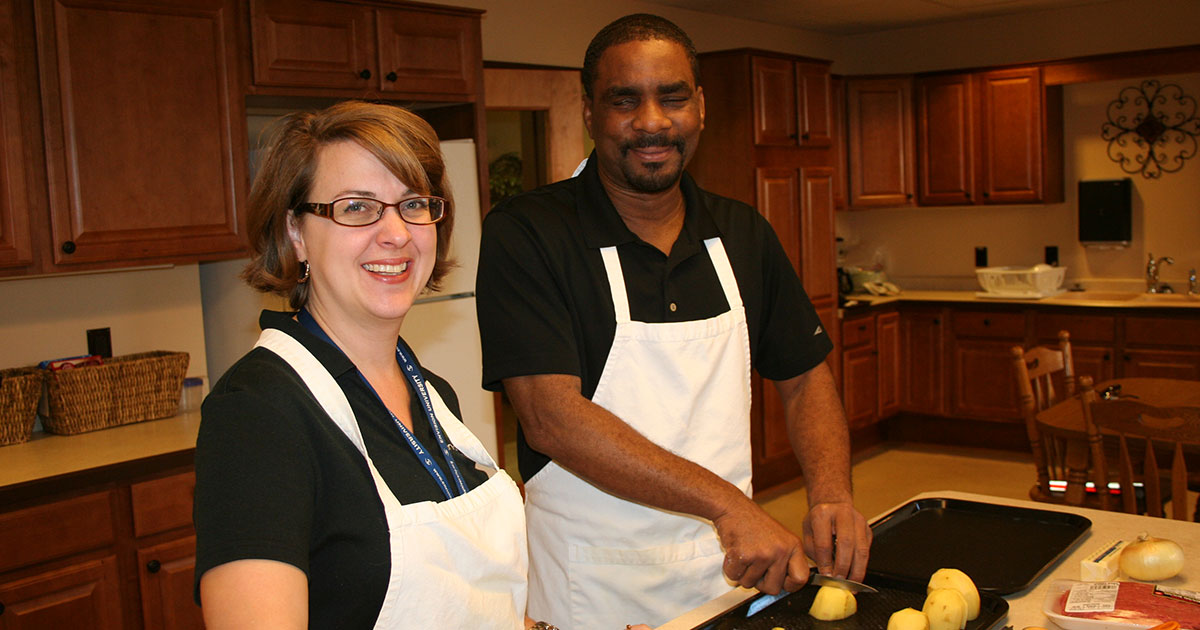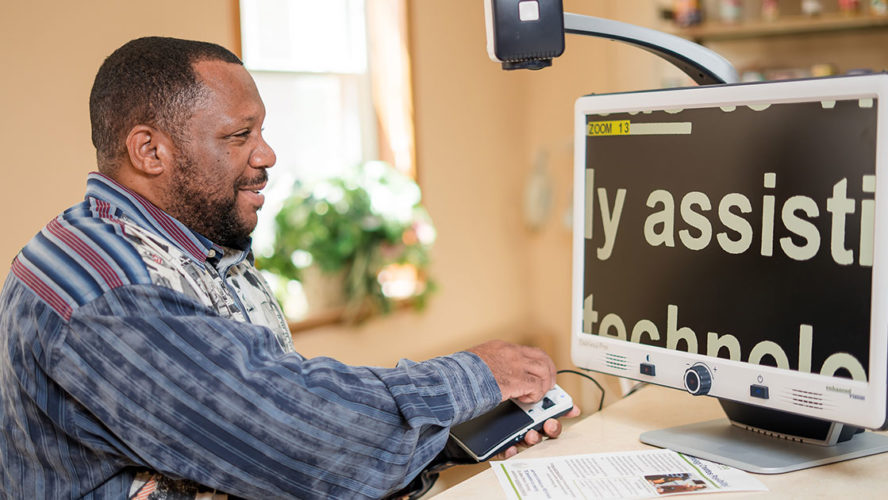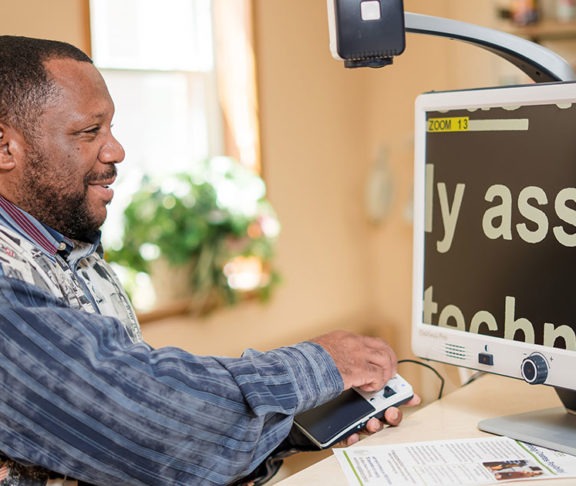According to the 2018 National Health Interview Survey, approximately 32.2 million adults in America reported that they either have trouble seeing, even when wearing glasses or contact lenses, or that they are blind or unable to see at all.
Additionally, the Centers for Disease Control and Prevention has declared vision loss a major health problem, with the leading causes of blindness and low vision in the United States being primarily age-related eye diseases such as macular degeneration, cataract, diabetic retinopathy, and glaucoma.
The reality is that low vision can make even the simplest tasks difficult, and sometimes impossible, to perform.
When Johnson Beamon began having vision issues at age 17 — not seeing very clearly, bumping into floor signs at the grocery store, struggling to drive at night — his mother took him to an ophthalmologist.
The diagnosis was retinitis pigmentosa, a group of related eye disorders that cause progressive vision loss. Three different doctors all delivered the same news: he had a limited time of vision remaining, so he should do and see all the things he wanted before he would lose much of his vision.
Johnson was devastated. He fell into a deep state of despair, feeling there was no hope. Without vision, he felt life had nothing to offer. This is where vision rehabilitation comes in.
Vision rehabilitation
Vision rehabilitation, as defined by the American Optometric Association, is a process of care for individuals with vision impairment(s) managed by doctors of optometry (or other eye physicians) as part of the eye and vision care continuum.
Eye care professionals are encouraged to not wait to refer their patient to vision rehabilitation services. These services can help as soon as an eye condition is diagnosed or when a patient is just starting to have functional issues.

The vision rehabilitation team helps individuals increase their safety, quality of life, and independence after vision loss through services that:
- Identify ways to make the most of their remaining vision with magnification, contrast enhancement, glare control, and enhanced lighting.
- Discover new methods for cooking and managing household tasks.
- Train on assistive technology to utilize computers and access print information.
- Organize information, including specialized note taking and smart devices.
- Connect with others through support groups after vision loss.
The vision rehabilitation team does not focus on diagnosing or treating eye disease, but rather on helping a person find ways to continue functioning despite vision loss. The team assesses how a person accomplishes tasks as well as the goals to be achieved. Additionally, the team may introduce new glasses, magnifiers, or other assistive devices to help people live successfully with their changing vision.
Living life to the fullest
The overall goal of the vision rehabilitation team is to help people with vision loss find new ways of doing the things they have always done and live the life they have always envisioned for themselves.
After working with the team at Vision Forward, a nonprofit in Wisconsin providing vision rehabilitation services, Johnson is now on the way to achieving his dream of a career in counseling and social work. His goal is to work in the field of vision loss and to use his own experience to help others navigate their individual journeys.
Anthony is another Vision Forward client who lost vision in his twenties. With vision rehabilitation services, he is now able to pursue one of his great joys: cooking.
“Through my training, I learned new ways to operate in the kitchen and how to work safely,” said Anthony. “I’m back on the stove cooking, and I’m happy. I’m very proud of myself. I can’t stand not doing anything now that I’m ready to do everything.”
Harvey, an 84-year-old low vision client, discovered new ways to read printed materials. “I don’t know where I would be without [Vision Forward],” he said. “The help you have given me is so important. You saved my life.”
To achieve the best outcomes, individuals experiencing vision loss should ask their eye care professional about vision rehabilitation services in their area. If you live in Wisconsin, contact Vision Forward Association for help at vision-forward.org or (414) 615-0100.

